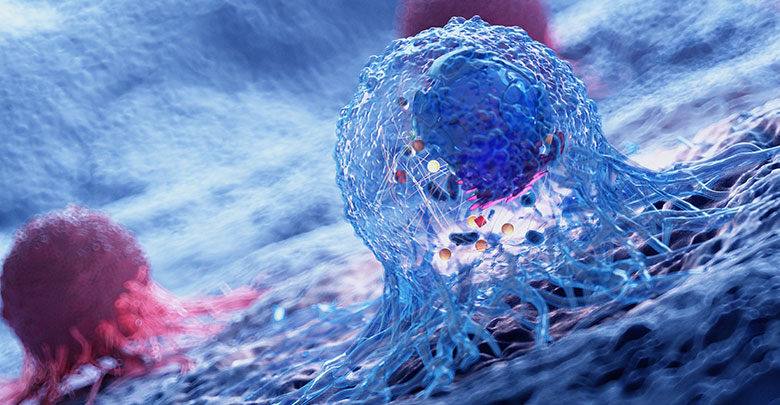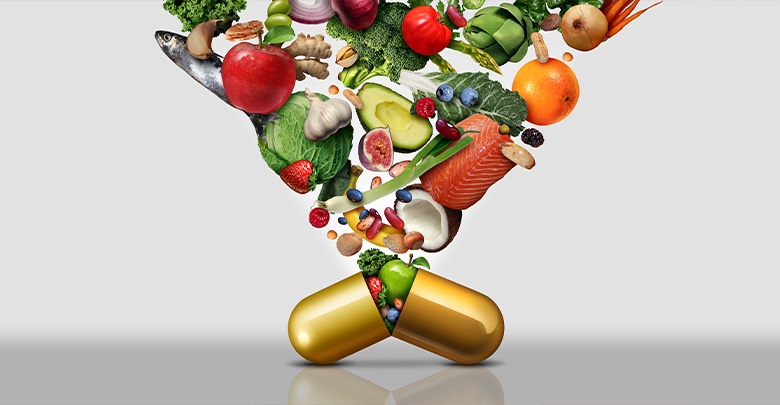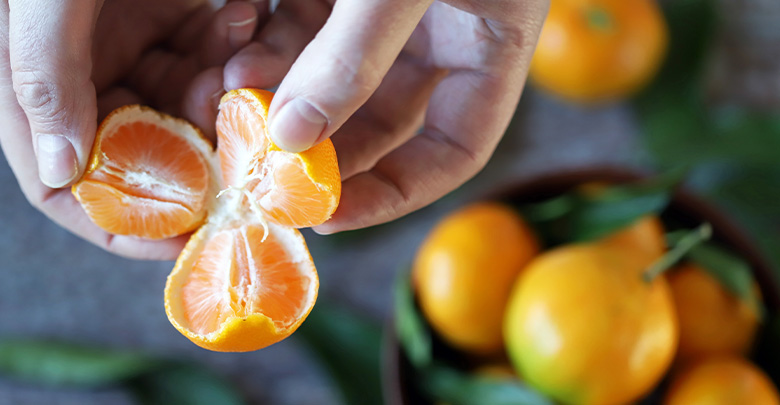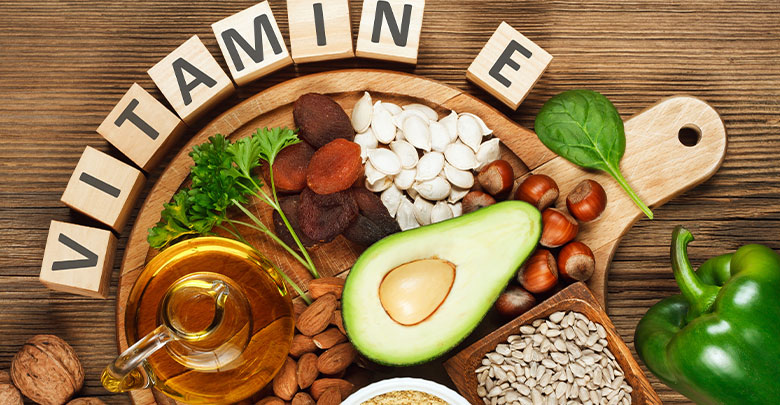Immune Boosting Foods
It has never been more important to get more immune boosting foods into your diet. Read about the most important nutrients to focus on right now.

It has never been more important to get more immune boosting foods into your diet. Read about the most important nutrients to focus on right now.
USE the OMH exclusive code "HEALTH15" to Save 15%Your immune system is like a well organised army which fights invaders. Invaders such as the coronavirus, or any germs or pathogens, which may enter your system.
This is a great summary of how your immune system actually functions
This article will focus on immune boosting foods, which contain scientifically proven micronutrients, in order to help keep your immune system well prepared and armed to fight off any invaders!
Vitamin A in immune boosting foods

Vitamin A is essential in order to maintain a healthy lining of your mouth, nose, airways, and gut. This mucosal lining forms your first line of defense against any viruses, bacterial or pathogens. Think of it like a high wall, which stops invaders.
Vitamin A is also essential for the healthy functioning of many of the immune system’s cells – such as macrophages, lymphocytes, killer T cells and neutrophiles to name a few. Think of these cells as the soldiers which kill viruses, and get rid of unhealthy, malfunctioning, infected cells. Vitamin A has been proven to improve antibody formation in response to vaccines – in other words it strengthens your body’s immune response.
Foods rich in Vitamin A
Meat sources – liver and other organ meats, codliver oil, fish and shellfish
Vegetable sources – sweet potato, pumpkin, carrots, sweet red peppers, spinach, broccoli
Legumes – black eyed peas
Fruit – cantaloupe melon, mango, apricots
Recipe inspiration for Vitamin A – Stuffed Sweet Potato with hummus, walnuts and pomegranates
Vitamin C

Vitamin C is probably the best-known immune boosting micronutrient. Vitamin C acts as an antioxidant within certain immune cells. It causes the creation of reactive oxygen which kills the germs. Vitamin C is a water soluble vitamin so it cannot be stored in your body, and your body cannot create Vitamin C for itself. It is therefore very important to get enough Vitamin C in your diet. Studies have shown that while Vitamin C does not prevent colds or flu in the average person, it reduces the duration of the cold. Interestingly it does seem to have a 50% preventative effect on getting a cold in the case of extreme athletes, who typically have a high risk of upper respiratory infections.
Foods rich in Vitamin C
Citrus fruits – oranges, lemons, grapefruit, mandarines, limes
Vegetables – bell peppers
Others – wild rose hips and acerola cherries
Recipe inspiration for Vitamin C – Italian Style Stuffed Stuffed red Peppers
Vitamin D
Vitamin D is sometimes called Vitamin Sunshine. It is a very important immune boosting micronutrient. If your levels of Vitamin D are optimal, it supports the healthy production of several immune cells, including monocytes, macrophages, dendritic cells, and lymphocytes. If your levels of Vitamin D are low, it will mean that your body will make fewer of these important infection fighting soldiers. There is a lot of scientific evidence that sub-optimal vitamin D levels are associated with compromised immunity and increased infection risk.
Daily supplementation of Vitamin D (400 – 4000Ius daily) has been proven to decrease the risk of upper respiratory infections by 49%! It important to discuss your levels of Vitamin D with your health care professional. Blood tests will show what your levels of Vitamin D are. Optimal levels are between 50-70 nanograms per milliliter. If you are deficient, it can be very difficult to get enough Vitamin D3 from foods and sunlight. It is therefore often necessary to take a supplement. You will need to have your levels checked every 3 months, as if you have too much Vitamin D that can also cause some health problems.
Sources of Vitamin D
Seafood – wild salmon (contains much higher levels of Vit D3 than farmed salmon), mackerel, sardines, halibut, herring, tuna
Eggs – the egg yolk specifically
Plant sources – wild mushrooms
Fortified food – many foods such as soya milk, cows milk, cereals and others have added Vitamin D.
Sunshine – time spent outdoors, without sunscreen, in the gentler hours of the day are critically important. Vitamin D is an important vitamin which your body produces when exposed to sunlight .
Recipe inspiration for Vitamin D – Lemon Herb Salmon and Zucchini
Vitamin E in immune boosting foods

A study of the elderly, found that daily supplementation of 200 IU of Vitamin E reduced the rate of common cold infections by 30%. Vitamin E is a fat soluble vitamin which is responsible for preventing damage to cell membranes and polyunsaturated fatty acids. It thereby protects our bodies from systemic inflammation.
Foods rich in Vitamin E
Plant based – avocados, olives, sunflower seeds, peanuts, almonds, spinach, swiss chard, butternut
Oils – wheatgerm oil, rice bran oil, grapeseed oil, avocado oil
Fish – trout
Recipe inspration for Vitamin – Beet and Spinach Breakfast Smoothie
Zinc
Zinc is a mineral, important for the development and function of immune cells. It cannot be stored in the body, and so it must be consumed regularly. It has been scientifically proven to boost anti-body production in response to vaccines. An interesting study of the elderly found that having normal serum zinc levels reduced the rate of pneumonia by 50% compared to low zinc levels.
Foods rich in zinc
Seafood – oysters, crab and lobster
Animal sources – beef, chicken (brown cuts), pork
Plant based – pumpkin seeds, cashew nuts, chickpeas
Recipe inspiration for Zinc – Spicy Shrimp and Chickpea Curry
Polyphenols are immune boosting food complexes

You have probably heard that dark chocolate, red wine, coffee and tea all have health benefits. These health benefits are from the complex chemical structures called polyphenols. This is a huge class of over 8000 compounds, which have anti-oxidant effects. This means that polyphenols prevent cellular damage by neutralising hazardous free radicals, which cause damage within cells.Polyphenols improve the overall health of cells, and this in turn benefits every system in the body. As a result these potent compounds also improve the health of the immune system, at the same time as protecting against chronic and acute diseases.
Foods rich in polyphenols:
Fruits – basically all fruit contains polyphenols. Fruits which are particularly rich in polyphenols include all berries (the darker the colour of the fruit, the more polyphenols they contain), citrus fruits, apricots, grapes, peaches, pears, tomatoes, cherries, and olives
Vegetables – vegetables particularly high in polyphenols include broccoli, curly kale, onions, garlic, red cabbage, eggplant
Herbs and spices – cloves are the highest food source of all! Star anise, dried oregano, dried sage, dried rosemary, dried thyme, dried sweet basil and dried ginger are all great sources of concentrated polyphenols
Other food sources – red wine, coffee, teas (all kinds), cocoa, dark chocolate (the darker the chocolate, the more polyphenols), flaxseeds, sesame seeds, and olive oil to name but a few.
Recipe inspiration: Greek kale quinoa salad
Probiotics

Probiotics support a healthy and diverse gut microbiome. This is critical for a healthy body and healthy immune system. A meta-analysis study done in 2011 showed a 42% reduction in people getting at least one upper respratory tract infection when taking prophylactic probiotics. If you would like to read more about a healthy gut microbiome check out this article.
Sources of gut healthy superfoods
Fermented foods – kimchi, yoghurt, sauerkraut
Other foods – all vegetables fruit, mushrooms, nuts and seeds, extra virgin olive oil
Animal sources – shellfish, fish, grass-fed meat, organ meat
Supplementation – there are many supplements available.
In closing on immune boosting foods
Boosting your immune system to minimise your risk of picking up a disease just became another great reason to load up your plate with brightly coloured fruits and tastily seasoned vegetables! Add some good quality sources of protein, some healthy fats and you are on the right path to a healthy immune system. Real food is the way to go. By real food we mean vegetables, fruits, and unprocessed protein sources/ meats and foods. When you shop you should easily be able to tell what the food is composed of – anything where you have to read a very long list of what is actually inside starts to become processed food.
Supplementation is of course an option. Try to find good quality supplements with optimal levels of micronutrients. Vitamin supplements sourced from whole foods are preferable to lab manufactured vitamins and minerals, as your body is better able to absorb and utilise the nutrients.
Read more about Immune Boosting Strategies to keep you healthy.
References
- Ballantyne, S 2014, The Paleo Approach: Reverse Autoimmune Disease and Heal Your Body, Victory Belt Publishing, Las Vega
- Bergman P, Lindh AU, Björkhem-Bergman L, Lindh JD. Vitamin D and Respiratory Tract Infections: A Systematic Review and Meta-Analysis of Randomized Controlled Trials. PLoS One. 2013;8(6):e65835. doi: 10.1371/journal.pone.0065835. Print 2013. Review. PubMed PMID: 23840373; PubMed Central PMCID: PMC3686844.
- Hao Q, Dong BR, Wu T. Probiotics for preventing acute upper respiratory tract infections.Cochrane Database Syst Rev. 2015 Feb 3;(2):CD006895. doi: 10.1002/14651858.CD006895.pub3. Review. PubMed PMID: 25927096.
- Hemilä H, Chalker E. Vitamin C for preventing and treating the common cold. Cochrane Database Syst Rev. 2013 Jan 31;(1):CD000980. doi: 10.1002/14651858.CD000980.pub4. Review. PubMed PMID: 23440782.
- InformedHealth.org [Internet]. Cologne, Germany: Institute for Quality and Efficiency in Health Care (IQWiG); 2006-. How does the immune system work? 2010 Nov 24 [Updated 2019 Nov 7]. Available from: https://www.ncbi.nlm.nih.gov/books/NBK279364/Meydani SN, Barnett JB, Dallal GE, Fine BC, Jacques PF, Leka LS, Hamer DH. Serum zinc and pneumonia in nursing home elderly. Am J Clin Nutr. 2007 Oct;86(4):1167-73. doi: 10.1093/ajcn/86.4.1167. PubMed PMID: 17921398; PubMed Central PMCID: PMC2323679.
- Meydani SN, Han SN, Hamer DH. Vitamin E and respiratory infection in the elderly. Ann N Y Acad Sci. 2004 Dec;1031:214-22. doi: 10.1196/annals.1331.021. Review. PubMed PMID: 15753147.
- Murray, MT. Pizzorno JE, 2012, The Encyclopedia of Natural Medicine, Third Edition, Atria Books, New York